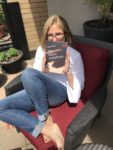Becoming a Non-Commissioned Piano Teacher
 The tweet said, “Make time for non-commissioned work.” I thought, Non-commissioned??? Have I ever even been given a commission???
The tweet said, “Make time for non-commissioned work.” I thought, Non-commissioned??? Have I ever even been given a commission???
This week, thanks to a post by Richard Byrne of Free Tech for Teachers, I heard a portion of Daniel Pink’s presentation at the Creativity World Forum. In it, he referenced a study by Teresa Amabile on commissioned vs. non-commissioned works of art.
The researchers assembled a group of artworks which had been commissioned and a group of artworks that had been created without commissions. They then asked experts to evaluate the works without revealing that some were commissioned and some not.
The results stunned them. While the works were rated equally in terms of technical merit, the non-commissioned works were overwhelmingly found to be more creative.
There was knowing laughter as Daniel Pink creatively described the strictures placed upon commissioned artists. I immediately started thinking about the limits we piano teachers place on our students.
Am I like the bad boss who breathes down her colleague’s neck and micro-manages his every move? I certainly try hard not to be. In a perfect piano world I would not be. I believe in allowing students to discover their own musical voices—their own creativity. That can’t happen if I am controlling their every musical thought and move.
Unfortunately, my piano world isn’t always perfect. Given too much freedom, there are students who play the system—who play me. There are students who are way too comfortable in the generality of the forest and the devil take the details. There are students who want to be spoon fed and who become nearly catatonic when given choices—even simple ones. There are students who are threatened by feedback—who wrongly believe that creativity is a license to do whatever you want without structure (what I call Musical Mud Pie Syndrome).
Fortunately, my piano world is also filled with many students who thrive in a discovery based learning environment. I can trust them to choose pieces from several options and follow through. I can serve as a guide as they create improvisations and compositions and as they craft their own interpretations. They spend time listening and reading though music because it gives them joy. They welcome tests of their limits and take feedback (both mine and others’) and use it creatively. They are terribly busy with commissions from school, family, personal, and the community and yet they make the time to do more than is required.
What might it mean to be a non-commissioned piano teacher? Here are some thoughts for your delectation.
- Playing competently is vital to a lifelong relationship with a musical instrument. There is, however, a danger zone where playing correctly becomes the entire purpose of the lesson causing the creativity–the actual music making–to take a back seat. Playing correctly whether it be technically, or musically is a process. One of my professors said, “Don’t try to play like you are 40- be who you are right now.” Of course right now I wish I was 40 again…
- Parental involvement is important, however, when parents voice a desire for an inappropriate event, evaluation program, or piece, we need the strength to say No and be prepared to back up that No with solid reasons and also present several alternatives.
- Student input and is important, however… (see #2)
- Before saying No to parents or students we need to ask ourselves, How might I be wrong? Could the supposedly inappropriate be used creatively? Could it be simply a long term project rather than a piece for the big recital? Might the student actually benefit from participation in a festival or competition even when the repertoire or artistic level are well below standard? Might the student actually take ownership of the situation resulting in a growth spurt that would otherwise be delayed?
- Some students need structure—a whole lot of structure. Even so, we need to find ways to provide opportunities for these students to create and interpret freely within that structure. Perhaps one piece, or one composition, or one improvisation could be worked on each semester without a teacher agenda—without limits. What if we gave such students a list of the tasks which need to be accomplished to master a piece, project, or technique and allowed them to choose the order they went about it. Would it be so terrible if they found out that the results might have been better had they sequenced things differently?
- There are schools (community and higher education) which have mandatory area recitals each semester. Teachers voice concerns that students don’t get the unhurried time they need to grow in areas other than solo performance because they are constantly preparing for performance. Does the solo piece have to be so all encompassing that there is no time for anything else? Do solo pieces always need to be memorized? Is there a way to incorporate reading or improvisation into the recital? This semester, we made a studio project out of Agay’s Variations on Happy Birthday to honor of Chopin, Schumann, and, as it happened one of our performers. The variations were divided up between the students and some students created their own. All the performers grew in their ability to learn a piece quickly to entertain, as well as in their understanding of the styles of eight different composers/periods, and the audience loved it.
- Time is a commission we all have to deal with. Using technology wisely can help us extend the face to face time we have with students and the time we all put in to manage our studios. Blogs, websites, and YouTube help us keep in touch and list useful resources, tutorials, videos, games, etc. Twitter and Facebook make relevant streams of thoughts, quotes, support, news, and ideas available 24-7. Sites such as Wikispaces make it possible for students and mentors to work on and edit a joint project simultaneously. Music notation programs make it possible to share projects via email and receive feedback between lessons. I had two students in the same level of our evaluation program who lived 170 miles away from each other emailing review theory questions and corrections back and forth last spring. The problems they created for each other were harder than what was on the test!



I agree! There was something I read years ago- I think it was in one of Madeline L’Engle’s books. It likened the structure needed for writing or other creative endeavors to the structure of the body.
“Musical Mud Pie Syndrome” ~ and there goes the rhythm.
There are so many variables in teaching when students are approached as individuals who are different from one another. Your post describes the necessary considerations so well.
The time many teachers put in making plans for their studios for a semester or a year makes me wonder. Is that one size fits all, or is there flexibility built in?
If a student learns a piece entirely without a teacher’s feedback, and then realizes that a different learning sequence may have been better, that’s great! The student would certainly remember the experience.
Great post.
Gretchen